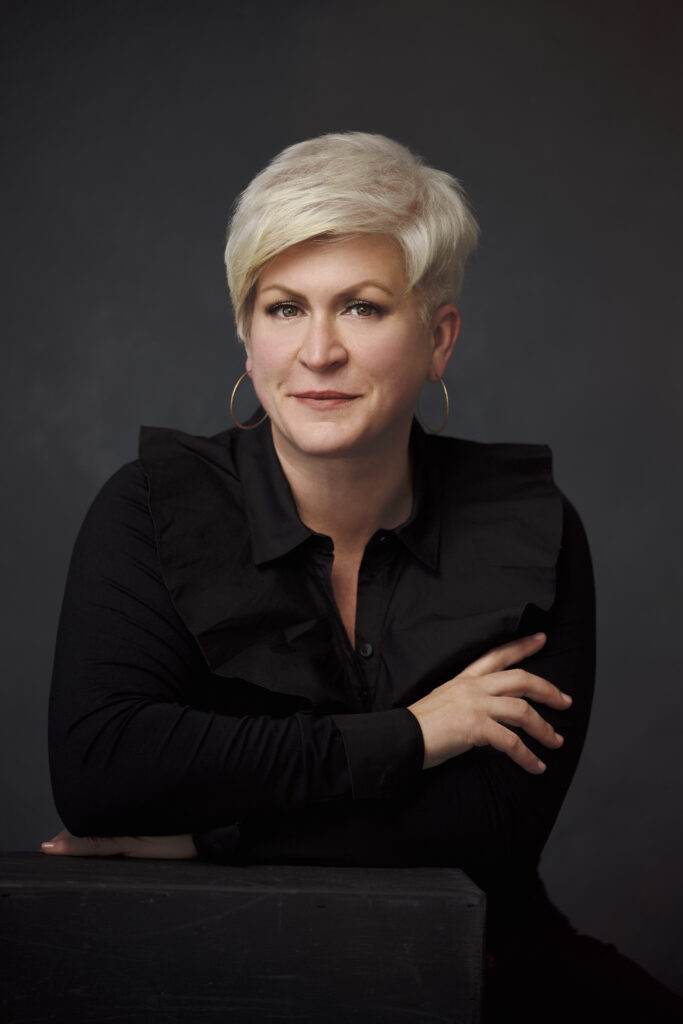What do you think of when you imagine a successful leader? Strong. Inspiring. Firm. Smart. Do you ever think… Compassionate? Empathetic? Queer?
Leaders from all over the world, myself included, are positing a new vision for what it means to be a successful leader. We are challenging the ideas of leadership that we have been taught for years and deciding what we want the future of leadership to look like.
For years, LGBTQ leaders have had to fight to be respected and to have our value recognized. In the process, we even know this from research, an outsized number of us – 1 in 5 – have been coached to be more “masculine” or “feminine.” We have told coming out stories in the safety of ERG meetings, but have rarely thought it to be a valuable part of leading our teams. And some of us did not come out at work until we achieved a certain rank within the company.
And nearly all of us – if not every single one of us – has had the moment of thinking that we are utterly alone in this. Whether we were the only bisexual woman in the room, or the only trans man not laughing at a ‘one of the guys’ jokes, we’ve all been there.
Out & Equal’s Executive Forum was initially an antidote to this sense of isolation. It brought together a small group of LGBTQ leaders to network and learn from one another. But Executive Forum has grown into a venue for hundreds to come together and really dive into learnings on leadership. This year’s forum took place earlier this month. It explored the fundamental understanding that successful leaders root themselves in compassion, intersectional allyship, and use their identities as catalysts for success.
As the number of LGBTQ leaders grows and as we become more visible, we can reimagine what being a leader looks like for us. We can conceptualize that our identities actually give us a competitive edge in our leadership, rather than the barriers to success we were once taught they were. And this goes for the multiple identities we carry – from race, to gender, to family status, to ability, and more. We can now begin to truly understand that the uniqueness and fullness of our identities, struggles, and life experiences are assets in our ability to be leaders.
When we lead with compassion, we can build trust with our colleagues. When we understand the importance of intersectionality, we can show up as allies for one another. When we bring our full selves to our leadership positions, we can start the hard conversations that push forward necessary progress. It is then that we can most effectively use our privilege to combat racism, dismantle systems that uphold white supremacy, and demand the most meaningful changes. We can use our empathy to ensure our workplaces are accessible and commit to advancing disability inclusion. We can use what we learn from our struggles and grief into addressing anti-Asian hate in our DEI efforts. The list goes on and on.
In my own journey through the ups and downs of the past year, I have leaned on the skills that I forged through my journey as a queer person, and through what has been instilled into me from the journeys of others in this community. For the LGBTQ community, going through the pandemic is not the first time that we have had to dig deep, to acknowledge who we truly are, and to find within ourselves the reserves that we have, the power to keep going. Many of us learned long ago that we can find strength by sharing, by being in community with one another, and we have applied that lesson over the past year to give us resilience.
I know – and there is emerging research that backs this up – that LGBTQ leaders tend to have unique skills that make us great leaders. Many of these are forged through our journeys. Things like emotional intelligence, self-awareness, and resilience. When we tap into these skills, we become leaders who are more inclusive, more creative, more adaptable, and better able to connect, communicate, and collaborate.
All of us have a role in helping drive the narrative about the future of leadership. As you think about your life’s journeys, I encourage you to think about the lessons that you have learned that can make you a better leader. If you are able to, please share those lessons with us by emailing them to stories@outandequal.org. We would love to use your experiences to help others learn.

Erin Uritus
CEO
Out & Equal Workplace Advocates